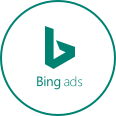
Pay-per-click advertising can be a powerful and effective way to market your business, but it can also be a competitive marketing strategy which can be tricky to master. The goal of paid advertising is low cost, high ad rankings and maximum return on investment. Mistakes or oversights in PPC can easily result in wasteful ad spend.
The way to avoid overspending in the world of PPC starts with diligent account management. The Google Ads recommendations tab is a tool that includes suggestions that may help to improve your campaign performance. What are some signs that your PPC campaigns contain wasteful ad spend?
Low Click-Through Rate
The ratio of clicks to impressions on your ad is known as click-through rate (CTR). It measures how effective your ads are at getting prospects to click through. A lot of factors can affect the CTR of your ads, including ad positioning, keywords, and call-to-action copy.
Low CTR can lead to wasted spending because ads with low CTRs typically end up costing more for fewer clicks. This can also affect your impression share, which is how often Google displays your ads, and it can negatively impact your quality score.
Low Keyword Quality Score
In Google Ads, Keyword Quality Score can have a big impact on the cost and effectiveness of your ad campaigns. Google determines this number based on a combination of factors including your CTR, ad relevance and landing page quality, which includes how quickly or slowly your landing page loads. This metric is used to determine where advertisers rank on a SERP and how much they pay.
Higher quality scores can lead to a higher return on investment (ROI), and they usually go along with a lower cost per conversion. Making the effort to improve your quality score by taking actions such as focusing on keyword research and improved ad text can help reduce wasteful ad spend. Quality score can also improve by organizing ad groups around a clear theme and using branded keywords.
Low Return on Ad Spend
Return on ad spend (ROAS) is how much revenue your business earns for every dollar spent on PPC advertising. It’s calculated based on revenue divided by advertising dollars spent. This calculation can help to tell you whether your ads are profitable. ROAS should be higher than $1:1 for your business to be profitable. The higher the number, the more effective your advertising campaign is.
When ROAS is low, it’s a clear sign that the money you’re investing in a particular campaign isn’t being used effectively. This information may indicate that you need to lower your advertising costs.
High Cost Per Conversion
PPC advertising costs money but spending too much on conversions is wasteful, so it’s important to know what conversions are costing you. Do extensive keyword research for your industry and find out the typical cost of keywords related to your business. This can help you to set a monthly budget along with a target cost per conversion.
Continually monitor your cost per conversion and look for ways to lower it. Keywords should be reviewed on a regular basis to determine which are generating conversions and which aren’t so you can pause the keywords that aren’t generating conversions. It can also be beneficial to determine what time of day you usually get the most conversions, which may be a clue regarding the best days or times to show your ads.
Using Broad Keyword Terms
Setting your keywords to broad match types sets you up to have your ads displayed when a query is only minimally related to your keywords. Broad match type can lead to a high volume of leads, but not many of them end up being truly targeted leads. Using broad match keywords can help to build your audience but using too many of them can cause your spend to be higher than it needs to be when you’re trying to attract targeted prospects.
Irrelevant Ads
If your ads don’t match searchers’ intent, they may be considered irrelevant. Irrelevance can be recognized when having a very large number of campaigns or too many ad groups. Too many ads or campaigns may be stretching your budget too thin, and most likely includes ads that aren’t targeted.
Setting negative keywords can help to reduce the amount of irrelevance in your ads. This helps to eliminate the possibility of showing your ads to people whose search intent isn’t related to what you’re offering. Using broad search terms without using negative keywords is likely to lead to wasteful ad spend.
Lack of Clarity
PPC success relies on close tracking of conversions. If you’re not closely tracking your business, the clarity that you should have on your advertising strategy is lacking. For best results, the data you should be studying represents the last 90-120 days of activity. Anything older than that may not be based on current campaigns.
Lack of clarity may include not being sure how to set a budget, how to bid properly, and/or adjust bids if necessary. It can be challenging to determine how much you should be spending or how to divide your budget between multiple campaigns. Learning an effective PPC strategy can be a complicated process, and it can be beneficial to obtain guidance in this area.
Getting Expert Guidance in PPC Campaigns
When the money you’re investing in PPC isn’t leading to the desired ROI, it’s time to evaluate your strategy and identify where there may be wasteful spend in your campaigns. If your results are falling short, recognizing when you need expert guidance in this area is a smart business strategy.
PPC can be complex and it’s important to minimize or avoid wasteful spending and to be sure your advertising dollars are being used in the best way possible. If you need professional guidance with your PPC campaigns, contact the experts at Softline Solutions. We can help take the stress away from your PPC campaigns and make them more effective. With us in your corner, you’ll be able to make this important advertising strategy work for you so you can realize your online potential.









